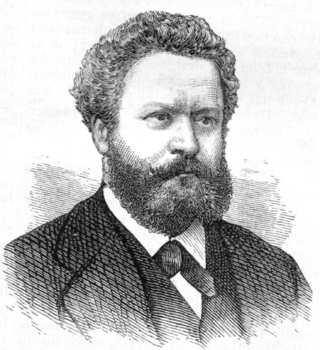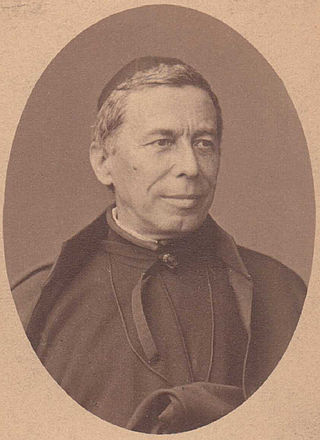
Johann Albrecht Friedrich August Meineke, German classical scholar, was born at Soest in the Duchy of Westphalia. He was father-in-law to philologist Theodor Bergk.

Peter Paul Dobrée was a British classical scholar and critic.

Edmond François Valentin About was a French novelist, publicist and journalist.

William Aldis Wright, was an English writer and editor.
Cleon was an Athenian general during the Peloponnesian War. He was an early representative of the commercial class in Athenian politics; which during the early Peloponnesian war was coming into prominence – although he was an aristocrat himself. He strongly advocated for an offensive war strategy and is remembered for being ruthless in carrying out his policies. He was often depicted in a negative way, predominantly by Thucydides and the comedic playwright Aristophanes, who both represent him as an unscrupulous, warmongering demagogue. Cleon was the son of Cleaenetus.
Hubert Ashton Holden was an English classical scholar.

James Orchard Halliwell-Phillipps was an English writer, Shakespearean scholar, antiquarian, and a collector of English nursery rhymes and fairy tales.
Francis Meres was an English churchman and author. His 1598 commonplace book includes the first critical account of poems and plays by Shakespeare.
Sir Thomas North was an English translator, military officer, lawyer, and justice of the peace. His translation into English of Plutarch's Parallel Lives is notable for being the main source text used by William Shakespeare for his Roman plays.

Edward Dowden was an Irish critic, professor, and poet.

Urbano Pio Francesco Rattazzi was an Italian politician and statesman.

Angelo Secchi was an Italian Catholic priest and astronomer from the Italian region of Emilia. He was director of the observatory at the Pontifical Gregorian University for 28 years. He was a pioneer in astronomical spectroscopy, and was one of the first scientists to state authoritatively that the Sun is a star.

William Wetmore Story was an American sculptor, art critic, poet, and editor.

Walter William Skeat, was a British philologist and Anglican deacon. The pre-eminent British philologist of his time, he was instrumental in developing the English language as a higher education subject in the United Kingdom.
Gesta Romanorum, meaning Deeds of the Romans, is a Latin collection of anecdotes and tales that was probably compiled about the end of the 13th century or the beginning of the 14th. It still possesses a two-fold literary interest, first as one of the most popular books of the time, and secondly as the source, directly or indirectly, of later literature, in Geoffrey Chaucer, John Gower, Giovanni Boccaccio, Thomas Hoccleve, William Shakespeare, and others.
Shakespeare's editors were essential in the development of the modern practice of producing printed books and the evolution of textual criticism.
The Cambridge Shakespeare is a long-running series of critical editions of William Shakespeare's works published by Cambridge University Press. The name encompasses three distinct series: The Cambridge Shakespeare (1863–1866), The New Shakespeare (1921–1969), and The New Cambridge Shakespeare (1984–present).
The lists of English translations from medieval sources provide overviews of notable medieval documents—historical, scientific, ecclesiastical and literary—that have been translated into English. This includes the original author, translator(s) and the translated document. Translations are from Old and Middle English, Old French, Irish, Scots, Old Dutch, Old Norse or Icelandic, Italian, Latin, Arabic, Greek, Persian, Syriac, Ethiopic, Coptic, Armenian, Hebrew and German, and most works cited are generally available in the University of Michigan's HathiTrust digital library and OCLC's WorldCat. Anonymous works are presented by topic.










